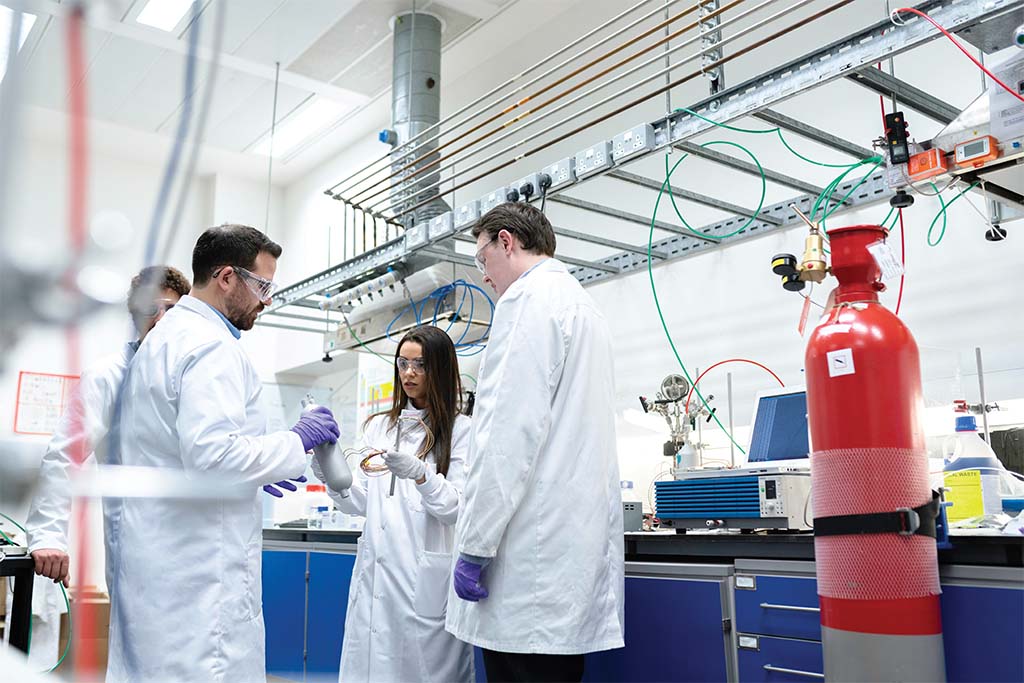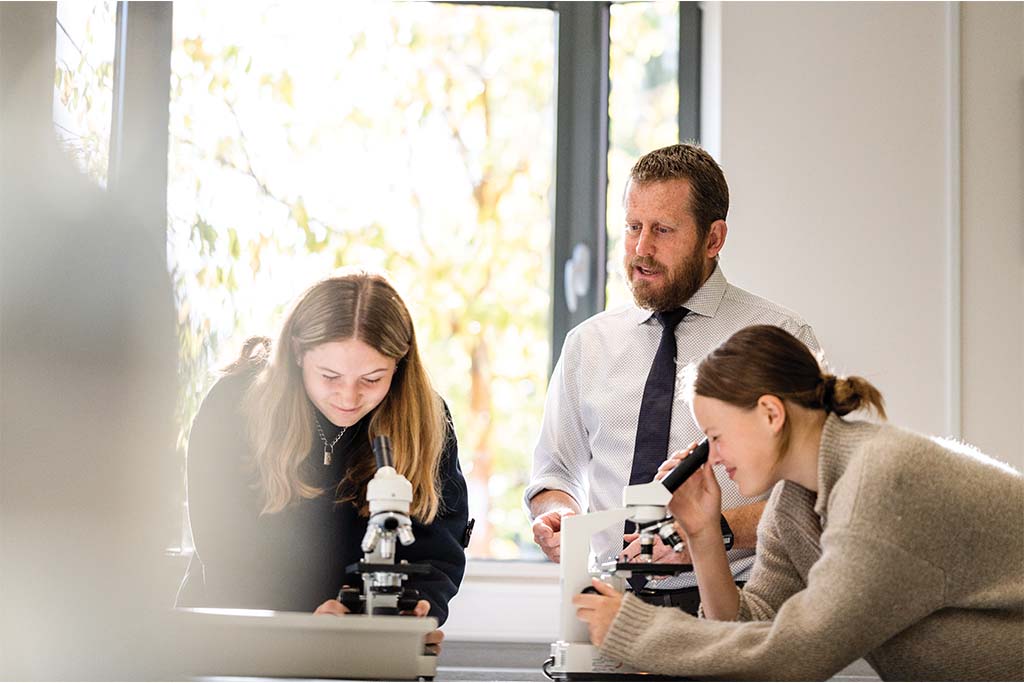Has University Had Its Day?
By
4 years ago

Emma Reed considers new paths to tread

Credit: Unsplash
There was a time when a particular educational path bestowed a measure of certainty of employment. A decent set of A-levels offered up a choice of well-regarded universities. A degree at one of those universities, irrespective of subject, opened the door to excellent career prospects.
Parents today, who may have been the beneficiary of this route themselves, are seeing the erosion of these certainties, accelerated further by the pandemic. A slew of A*s no longer guarantees a place at a highly sought-after university and, for many, the university ‘experience’ has been absent both in terms of face-to-face teaching and social life over the last year. As the world becomes increasingly fast-paced and competitive, employers are looking for much more from graduates than the stamp of a certain university or degree on a CV.
A survey conducted by the Sutton Trust in 2019, found that 20 per cent of students thought studying for a degree was not as important compared to 11 per cent in 2013. A further report published in February this year, ‘Covid-19 and the University Experience,’ by Dr Rebecca Montacute and Erica Holt-White, states that 76 per cent of students are worried about gaining the skills and experience needed for employment. Are universities becoming outmoded and what are the viable alternatives for today’s students operating in an uncertain world?
Andrew Bray, Head of Future Pathways at Bryanston, Dorset, has noticed a shift and the school is responding accordingly. ‘We recognise that the landscape for pupils is changing as more options become available to them. We are seeing an increase in vocational subjects and, among our Year 12 pupils, we are seeing an increasing trend of them looking at alternative options to university. More businesses are offering degree apprenticeships. This is an option that is becoming more popular as pupils are attracted to studying for a degree while gaining valuable experience and a high chance of securing a job at the end of their degree.’

Credit: Unsplash
Bryanston has introduced an annual mock assessment centre for all Year 12s which is run by a global business and gives the pupils the experience of what to expect when applying for degree apprenticeships and graduate jobs. Bray recognises the need to adapt. ‘As new courses, routes and careers evolve, we must continue to tailor our teaching to provide our pupils with the information and knowledge of these opportunities.’
Benjamin, one of Bryanston’s pupil is all in favour. ‘I am considering alternate routes after my A-levels due to the fact that the value for money you get at university is far lower than it once was, and in the eyes of many employers, experience is more valuable than a degree.’
The degree apprenticeship is arguably the most obvious alternative available to those who might otherwise consider the traditional route of a university degree. Combining paid work and study, it’s an attractive option. The fact that it is offered by professions such as law and accountancy and many large commercial enterprises is a strong indication that apprenticeships are a serious contender and competition for them is fierce.
For example, some City law firms now offer solicitor apprenticeships. This enables aspiring lawyers to obtain training in house and study at the same time whilst being paid. Although an intense workload, direct experience of the nature of the work involved and the dynamics of a law firm puts a candidate in an enviable position compared to a graduate law student who may not have any experience of commercial practicalities. A First in law is not that much use if you are unable to advise a client over the telephone. An apprenticeship, including training to pass the new Solicitors Qualifying Examination, typically takes five to six years to complete, which is still comparable to a traditional degree and vocational training.

Sam Guttridge is in his second year of a BSc (Hons) Building Surveying Degree Apprenticeship course with Munday + Cramer Architectural and Building Surveyors Ltd. ‘I chose the degree apprenticeship route over other options as I was set on getting a degree, but I was concerned about the financial implications of university. I wasn’t keen on the idea of having to pay back a student loan or scrape by on wages from a part-time university job. It’s great having financial freedom while also receiving a university education. The day-to-day work gives you indispensable first-hand experience that you would struggle to get on a full-time course. The university education expands your knowledge in areas that would rarely be touched on in certain practices.’
Lee Hatwell, Director at Munday + Cramer, states that the apprenticeship route has quickly become their go-to method of developing professional teams across their business. ‘Their opportunities are endless and despite the current uncertain times, apprentices have a huge role to play in taking our profession and business to the next level.’
Abigail Chadd, Director of independent A-level revision and tuition company A Level Revision UK, says that in the last 12 months, they have observed a shift in students’ approach to higher education. ‘Many students are now looking for alternative routes to pursue their dream careers. With forward-thinking companies offering higher-level apprenticeships, there isn’t any reason why, with a strong set of A-level results, students can’t be just as successful stepping straight into industry.’ Or by looking at alternative training options.
Those wishing to follow a creative path where access to industry contacts and experience is key, can obtain just that at places like Access Creative College; previous students include Ed Sheeran, Jess Glynne, Rita Ora and JP Cooper and students have moved into other industries from heading up a radio station to running stages at Glastonbury festival.

Mark Smithers, centre manager at its Bristol base, says they are also seeing increasing numbers join at 16 and 18. ‘It’s an opportunity to be in a working environment among some of the best in the business. Our experience shows that the connections and contacts students make while they learn are hugely beneficial to their future careers. There’s something to be said for being taught and mentored by tutors who are in the industry, who have sight of the skills in highest demand and what the most lucrative roles of the future might look like.’
Susan Smith is a careers consultant at All Things Careers and works with parents and students to inform them of the alternative routes available. She has often found herself up against the long-held view that university is the only viable route to a good career. And it is true for some careers, there is no substitute for the traditional route. ‘One area we have seen remain consistent during this period,’ says Chadd ‘are students wishing to go into the medical profession. Competition is extremely fierce for medical degrees with UCAS receiving a record number of applications last year, something we expect to see reflected again in 2022 applicants.’
But for many blue-chip careers, apprenticeships can be seen as an easier way of getting a foot through the door. ‘If students are not doing internships at university or not getting involved in leadership roles within clubs and societies, it is incredibly hard to compete and successfully apply to large blue chip graduate positions,’ says Smith.
‘The opportunity to get into investment banking, finance, local government and Westminster is phenomenal with the degree apprenticeship route. The degree is the same degree. It’s not watered down. I have also noticed an increase in employers approaching outstanding sixth form students. It is just like graduate employers targeting university students.’ However, Smith notes that, for many, the idea of student life at university is still a big draw.
One of the attractions of the university route is the experience itself. ‘University is still seen as a transitory experience between school and the world of work and both our pupils, and their parents favour this route,’ says Repton’s Head of Higher Education and Careers, Jack Swanston.
‘Given the significant investment that so many of our parents make in their sons and daughters’ secondary education, the general feeling is that aspiring to further study will enhance their educational experience. Our pupils see university study as a more holistic experience, often looking for an institution that will offer an exciting location, excellent study opportunities and a variety of sporting provisions.
‘Early career entry wouldn’t necessarily provide these opportunities as part of a cohesive experience. Rather than seeing a rise in vocational training and apprenticeships, we have seen a greater number of pupils applying internationally and securing places at some of the world’s most renowned universities.’
Despite the uncertainties of the last year, university is still viewed as the ultimate destination for many. However, for those who are keen to explore the challenge of a different route into employment, there are now many exciting opportunities and a greater choice. Universities cannot afford to be complacent.
READ MORE FROM AUTUMN/WINTER 2021
If The Shoe Fits | Championing the IB



